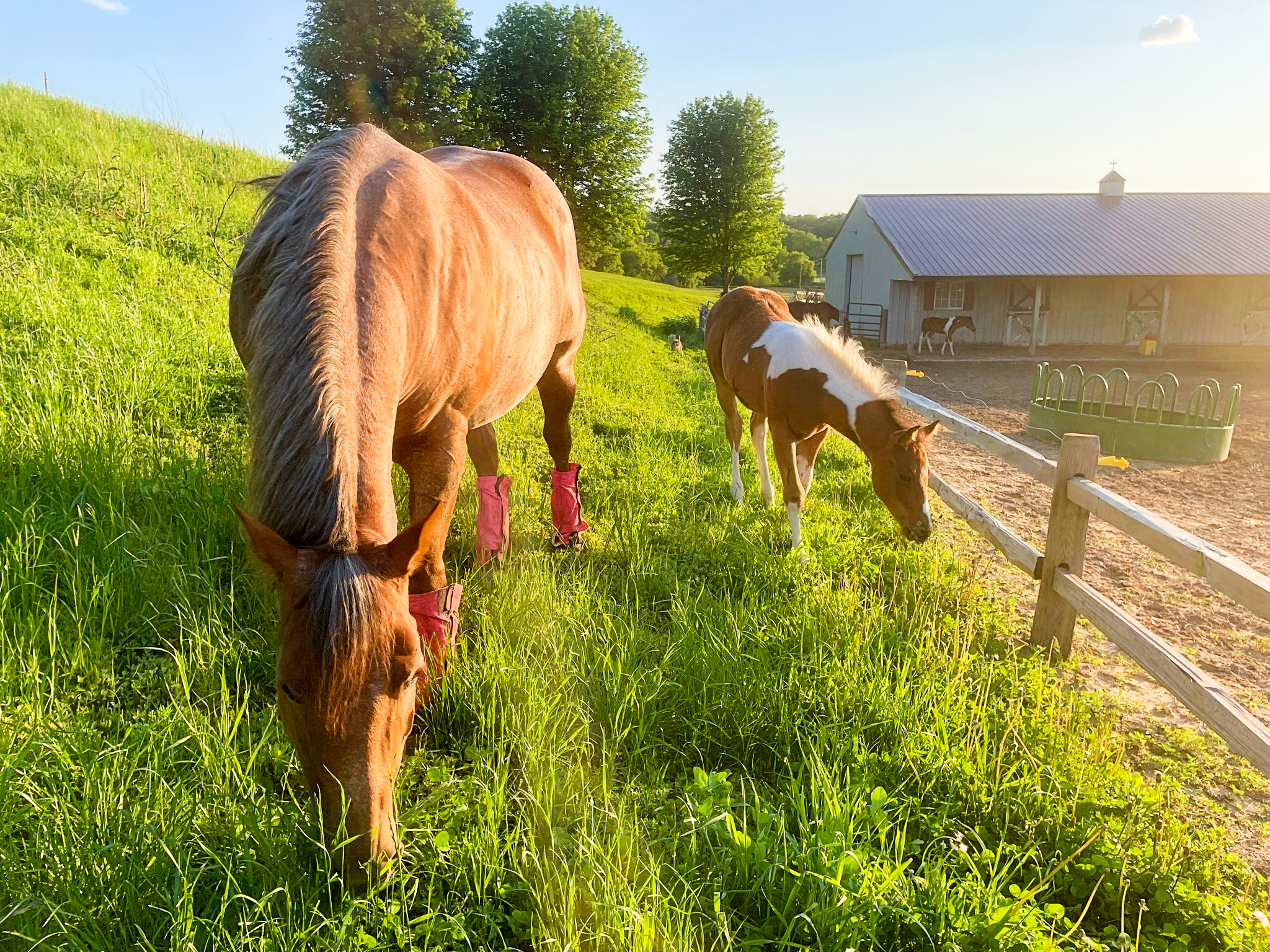Straining to live
Trouble urinating leads to life-saving surgery for newborn foal
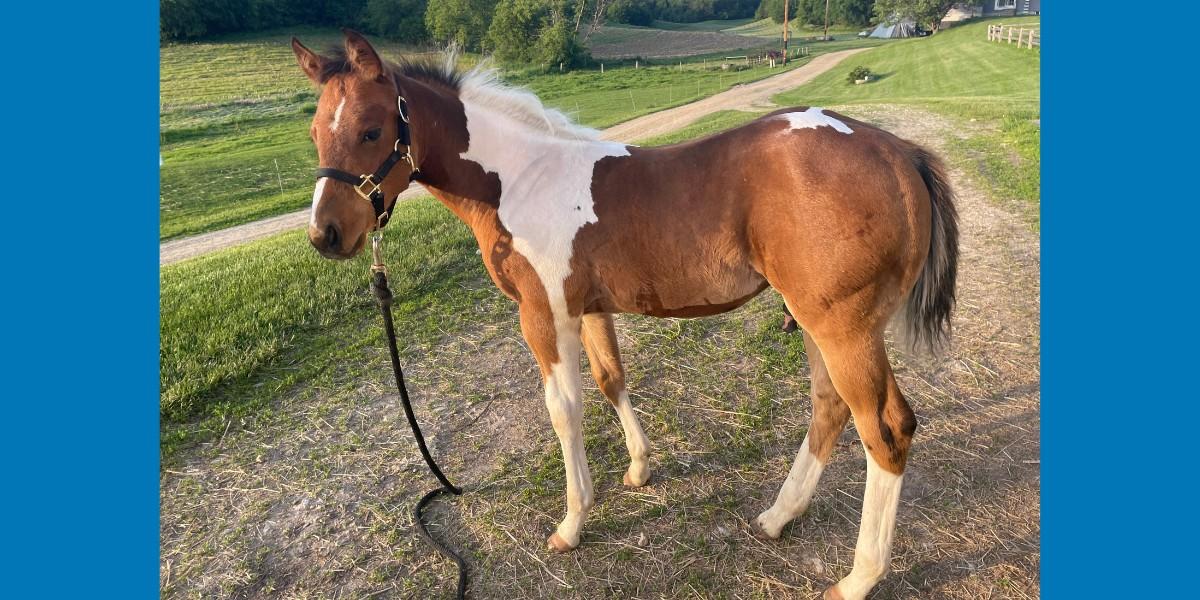
Trouble urinating leads to life-saving surgery for newborn foal
Levi, a now 7-month-old foal, experienced trouble urinating in the days following his birth. Photo courtesy of Rylie Guza.
When Levi was born in March 2022, he had three jobs to do. The little foal needed to stand up and nurse, urinate, and defecate within hours of birth as a sign he was in good health.
He was quick to nurse from his mother, a 12-year-old dam named Rosie. As his owner, Rylie Guza, waited for the other two bodily functions to occur, she observed the little horse was quite spirited, much like his mother.
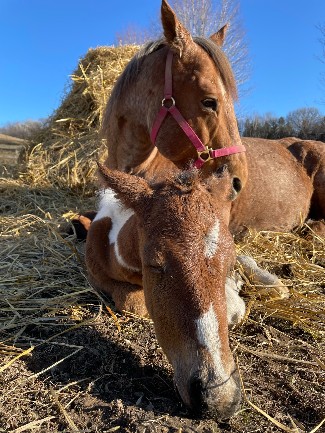
Rosie came to Guza as a malnourished yearling, one of five rescued from an unfortunate situation.
“She was only a year old and completely wild,” Guza recalls. “She was never touched, never haltered, and had no human contact. But we knew she had a kind eye and that she was going to be perfect for me.”
Over the past decade, the pair bonded and put Rosie’s athleticism on display in barrel racing, qualifying for state competition five years in a row and showing well each time. After retiring from racing, Rosie was bred and Guza watched the horse she considered her child have a baby of her own.
As the hours of that new baby’s life ticked by, he continued to nurse and eventually defecated but by the next day, neither Guza or her mom, Connie, saw signs of urination.
“Mom noticed that it looked like he was trying to pee but nothing was coming out," Guza says. “We saw that his stomach was distended and that something was wrong. We needed to take them to the vet because this was serious.”
Guza, her mom, and her sister, Jaydin, loaded up Levi and Rosie and headed to the neonatal intensive care unit at Piper Equine Hospital at the University of Minnesota College of Veterinary Medicine. They set off from their Wisconsin home at about 11 p.m. and were greeted by Piper staff at 1 a.m.
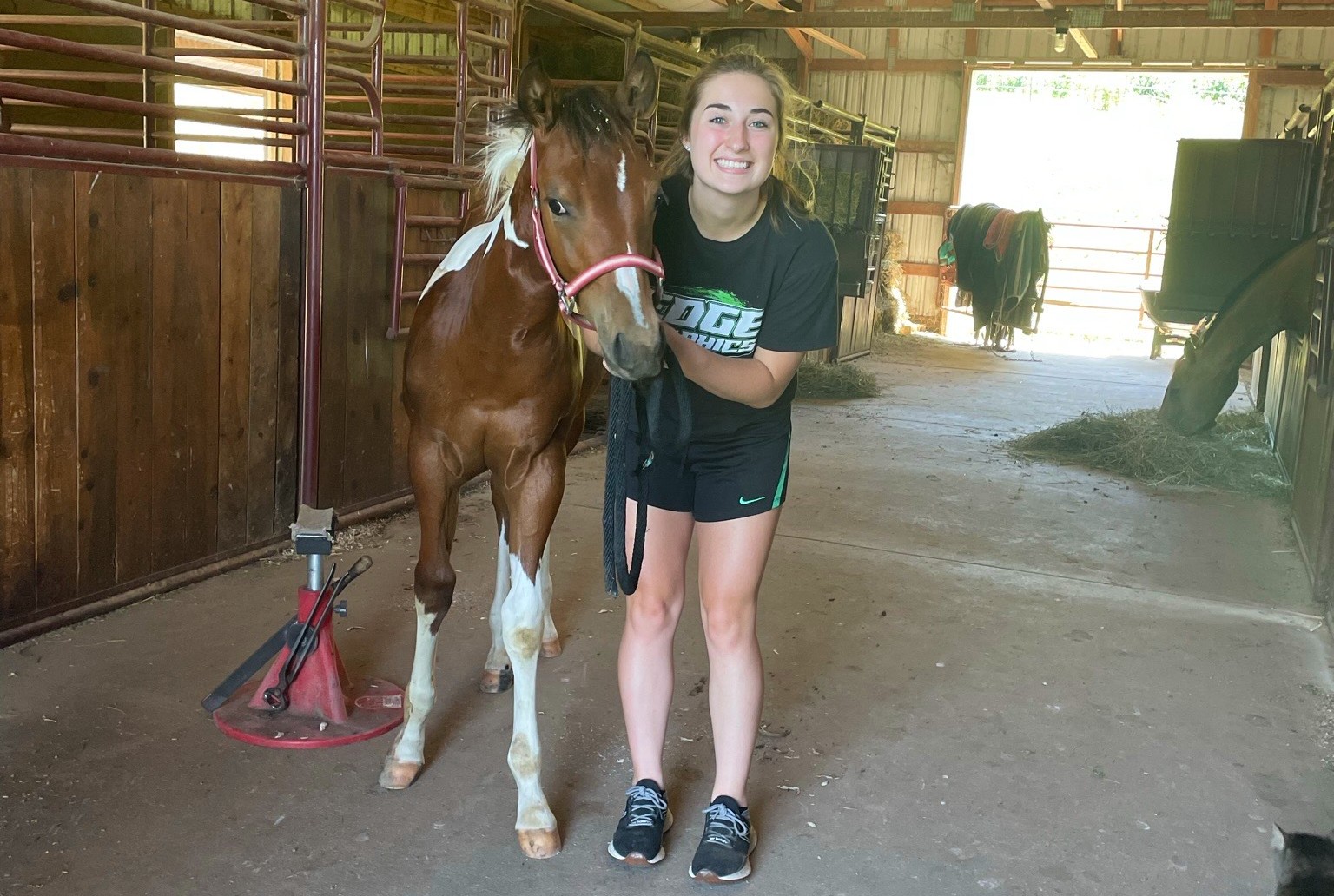
Clinicians examined Levi and conducted an ultrasound that confirmed the foal’s bladder was distended. Veterinarians presumed Levi was unable to relax his urethral sphincter, a muscular structure that expands and contracts to regulate the flow of urine between the bladder and the urethra. This condition is known as urinary detrusor sphincter dyssynergia. A catheter was inserted to help evacuate the urine and relieve the stress on Levi’s bladder and medications were started to help relax his urethral sphincter.
Once the catheter was removed three days later, a follow-up ultrasound showed Levi’s bladder was no longer distended. Things were looking up for the little horse. It was now up to him to urinate on his own. And he did, with clinicians observing him successfully pass several streams of urine without evidence of straining that day.
Later that night, Levi’s health took a turn. He became lethargic and his urination became strained once more, prompting further testing. Another ultrasound and bloodwork the next morning revealed his bladder was ruptured and surgery would be required to fix it.
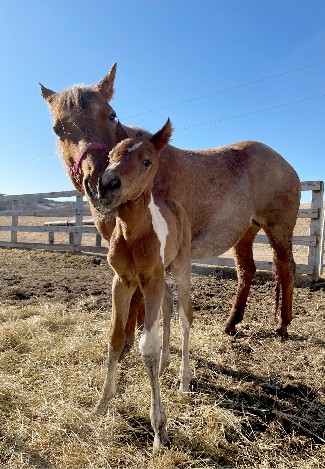
It was hard news for Guza to hear, though she’d been steeling herself for such an outcome or something much worse.
“Right away in the beginning, we had planned for the worst,” she says. “It was very hard for me to think I might be bringing Rosie home without her baby. I told myself that I am going to do everything in my power to help Levi and even if it was a sad outcome, I would’ve understood that there was nothing more I could’ve done.”
The surgery also represented a financial challenge for Guza and her family. They were introduced to the Hercules Compassion Fund, a fund that supports patient care at Piper Equine Hospital, Large Animal Hospital, and the West Metro Equine Practice by giving financial assistance to qualifying clients.
“No matter how much I got I was happy to have help,” Guza says. “I had received about $1,600, which was very much appreciated in so many ways.”
Levi underwent surgery to repair his bladder and drain urine that had escaped from it during the rupture. With no complications from his procedure, Levi was on track to fully recover. After an 11-day hospital stay, Levi’s care team cleared him to return home and remain on stall rest for a month before slowly resuming activity.
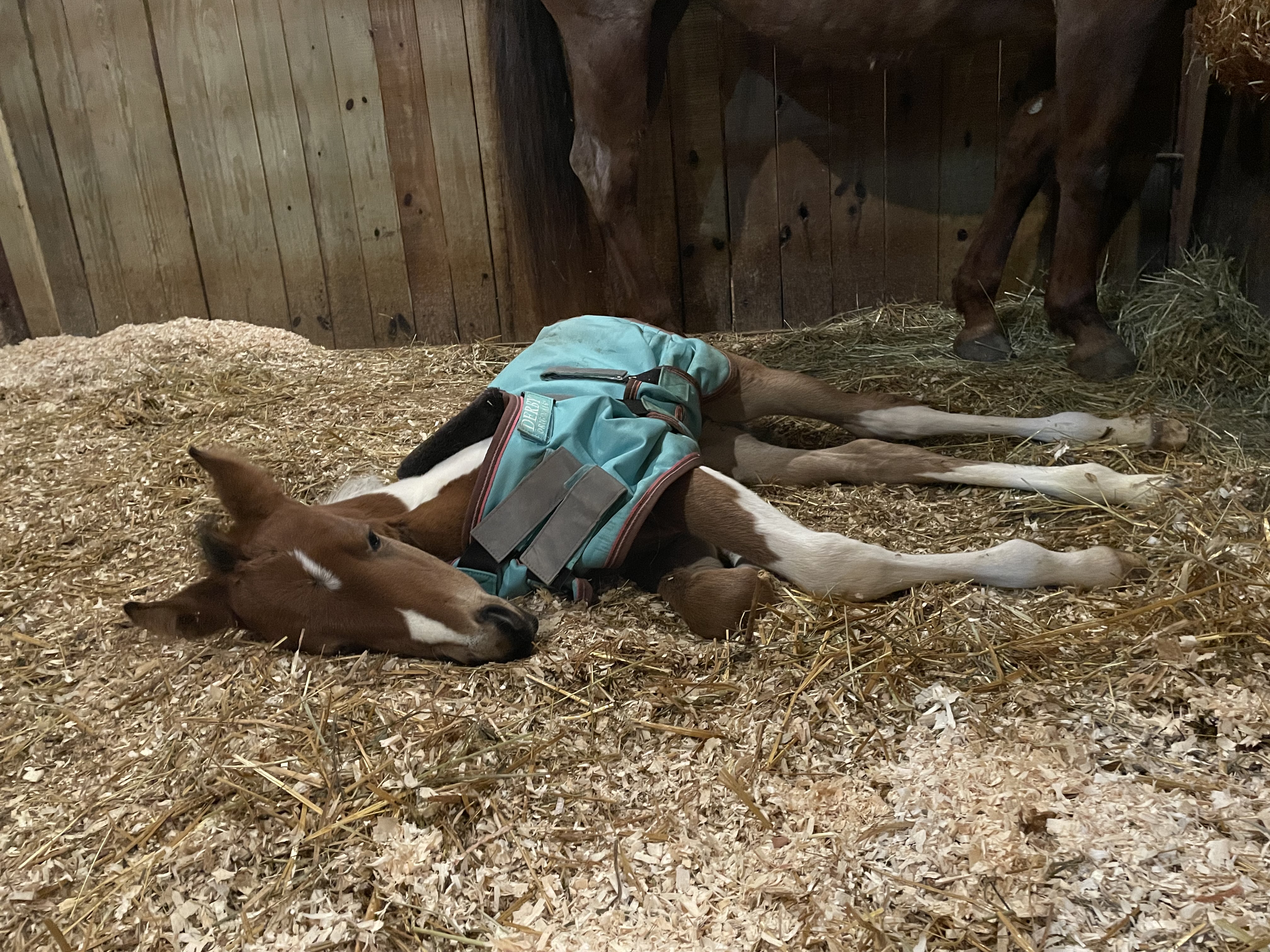
Guza couldn’t be happier to have Levi and Rosie back on the farm. In the months since his procedure, Levi has made a full recovery and has even accompanied Guza and mom, Rosie, on an overnight camping trip and trail rides. As he continues to grow, so does his personality.
“Levi today is very very talkative,” Guza says. “Every time you come into the barn he always, no matter what, gives you a little snicker, says come and pet me.”
She adds that she is extremely grateful for the care he received at Piper Equine Hospital, which put his health back on track and gave her a chance to watch her sassy little horse continue to grow and thrive.
